Despite significant achievements, the Vietnamese pharmaceutical industry is still facing many challenges. In particular, the production of high-tech drugs, generic drugs, vaccines and modern biological products is still at a modest stage.
Despite significant achievements, the Vietnamese pharmaceutical industry is still facing many challenges. In particular, the production of high-tech drugs, generic drugs, vaccines and modern biological products is still at a modest stage.
New policy to support food technology transfer
In the context of globalization and the strong development of the pharmaceutical industry, Vietnam is making constant efforts to become a center for high-quality pharmaceutical production in the ASEAN region.
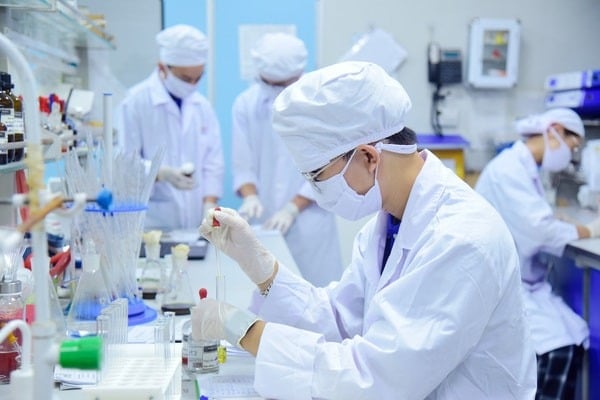 |
| By 2024, only 20 innovative drugs will have technology transferred from multinational companies such as AstraZeneca, Servier, and Viatris to Vietnam. |
One of the important strategies is to transfer technology to produce drugs, vaccines and biological products, not only to meet domestic demand but also to enhance competitiveness in the global pharmaceutical supply chain.
Vietnam currently has 238 factories meeting GMP-WHO standards, of which 17 factories meet GMP-EU standards, mainly producing generic drugs.
Despite significant achievements, the Vietnamese pharmaceutical industry is still facing many challenges. In particular, the production of high-tech drugs, generic drugs, vaccines and modern biological products is still at a modest stage.
Currently, the Vietnamese pharmaceutical industry only meets about 70% in quantity and 46.3% in value of domestic drug demand, with most of the raw materials for drug production still having to be imported.
One of the major problems today is that Vietnam's vaccine research and production capacity is still limited. Although 15 types of vaccines have been produced domestically, meeting 100% of the expanded immunization needs, this rate for service immunization is still only 10%. The production of mRNA vaccines, breakthrough vaccines or high-tech biological products is still a distant goal that has not been fully realized.
To address this issue, the revised and supplemented Law on Pharmacy has introduced policies to prioritize technology transfer in the pharmaceutical sector. These policies not only support technology transfer but also encourage companies to invest in the production of domestic generic drugs and vaccines.
According to Mr. Ta Manh Hung, Deputy Director of the Drug Administration of Vietnam ( Ministry of Health ), this amendment will help shorten the time for granting registration certificates for special drugs, including new drugs, generic drugs, rare drugs and vaccines, while creating a more favorable environment for implementing technology transfer projects.
In addition, preferential policies on taxes, loans and land support will also help pharmaceutical businesses have stronger motivation to cooperate with international partners.
However, the current reality shows that the results of technology transfer are still quite limited. As of 2024, only 20 invented drugs have been transferred technology from multinational companies such as AstraZeneca, Servier, Viatris to Vietnam, of which only 3 drugs have been granted registration numbers.
This is a rather modest figure, showing the need for stronger policies and solutions to promote the technology transfer process.
Before the revised Law on Pharmacy was issued, speaking with reporters, Ms. Nguyen Thu Thuy, Head of the Hanoi Representative Office of Servier Company, admitted that the company was facing many difficulties in implementing investment incentives for the project.
Specifically, Decision No. 376/QD-TTg dated March 17, 2021 stipulates a roadmap for maintaining and reducing prices of innovative drugs to attract enterprises to transfer technology to produce innovative drugs in Vietnam. However, for a long time, there has been no legal document specifically regulating this incentive.
The practical application of regulations in price negotiations is also inconsistent, not ensuring incentives for technology transfer projects.
A representative of Medochemie Company Limited (Far East) said that each technology transfer project is very costly and requires detailed cost estimates for each product.
Technology transfer takes a lot of time from key departments, training time for employees, and operating time of equipment that should not be used for commercial production to serve the technology transfer product.
According to Ms. Nguyen Thi Luong Phong, Director of External Relations of Sanofi Pharmaceutical Group, from drug invention to licensing, developing a new drug takes 10 to 15 years, costing 2.6 billion dollars. Thus, if there is just one delay or blockage somewhere, the damage will be huge in terms of both time and cost.
Legal reform and attractive investment policies
To achieve the goal of developing Vietnam's pharmaceutical industry on par with advanced countries and creating high-value pharmaceutical products, Vietnam needs to create favorable conditions for businesses to participate in the technology transfer process, build supporting infrastructure and develop a system of intellectual property regulations.
Furthermore, promoting scientific research programs, building and developing high-value pharmaceutical industries such as vaccines and biological drugs will help Vietnam improve its competitiveness in the pharmaceutical production and supply chain in the ASEAN region.
Mr. Atul Tandon, General Director of AstraZeneca Vietnam, shared that Vietnam has many strengths in human resources, but needs to create more incentives and favorable conditions to maximize that capacity.
AstraZeneca's commitment to technology transfer and cooperation with Vietnamese authorities is a testament to the strong determination of international corporations to contribute to the development of Vietnam's pharmaceutical industry.
According to Mr. Dion Warren, General Director of Southeast Asia and India of Takeda, he highly appreciated Vietnam's innovation process in developing the pharmaceutical industry and affirmed that in the past time, businesses have made great efforts to adapt to this process.
“We have spent nearly $5 billion on research and development (R&D). Takeda has made significant advances in the areas of cancer treatment, gastrointestinal diseases, rare diseases, plasma therapies and now vaccines,” added Dion Warren.
On the other hand, Ms. Radhika Bhalla, General Director of Viatris Vietnam and Asian Union Markets, said that over the past time, Viatris has strived to provide high-quality medicines to more than 1 billion patients worldwide.
To do this, Viatris has operated a convenient supply chain to help people access medicines easily and quickly. In addition, Viatris also focuses on sustainability and global scale in the supply chain when cooperating with medical and pharmaceutical associations to raise awareness for pharmacists and pharmacies in people's health care.
Ms. Radhika Bhalla also shared that Viatris is very happy to receive encouragement and support from the Government and the Ministry of Health. However, this activity still faces many difficulties and obstacles in terms of registration procedures and investment policies. Therefore, legal reforms are needed to create a clearer and more attractive foreign investment environment for the pharmaceutical industry.
In some countries, policymakers are focusing on technology transfer initiatives to promote supply-side self-sufficiency and help countries address health care needs through a combination of global, regional, and local production.
Vietnam can achieve a similar balance while continuing to attract investment by providing tax incentives, simplifying the licensing process for technology transfer drugs, and facilitating early market entry of these drugs.
“In addition, reducing the administrative burden associated with technology transfer models could attract more investment in expertise from multinational companies to Vietnam and, in the long term, promote the strong development of the domestic pharmaceutical manufacturing industry, while maintaining the global supply chain,” said Ms. Viatris.
On the research side, according to Dr. Nguyen Khanh Phuong, Director of the Institute of Health Strategy and Policy, the Vietnamese pharmaceutical industry not only needs to improve production technology but also develop appropriate human resources and infrastructure policies to receive and master technology.
Technology transfer in the pharmaceutical sector requires huge investment, long-term investment and especially high-quality human resources. This requires a comprehensive strategy, including strengthening human resource training, improving research capacity, and developing an ecosystem to support innovation in the pharmaceutical sector.
Vietnam is currently among the countries with the fastest total pharmaceutical market value and pharmaceutical industry growth in the world. The total pharmaceutical market value in Vietnam reached 2.7 billion USD in 2015, increased to 5.1 billion USD in 2018, 6.1 billion USD in 2020 and is estimated to reach nearly 7 billion USD by 2023.
Source: https://baodautu.vn/phat-trien-dot-pha-nganh-duoc-bang-chuyen-giao-cong-nghe-d237602.html



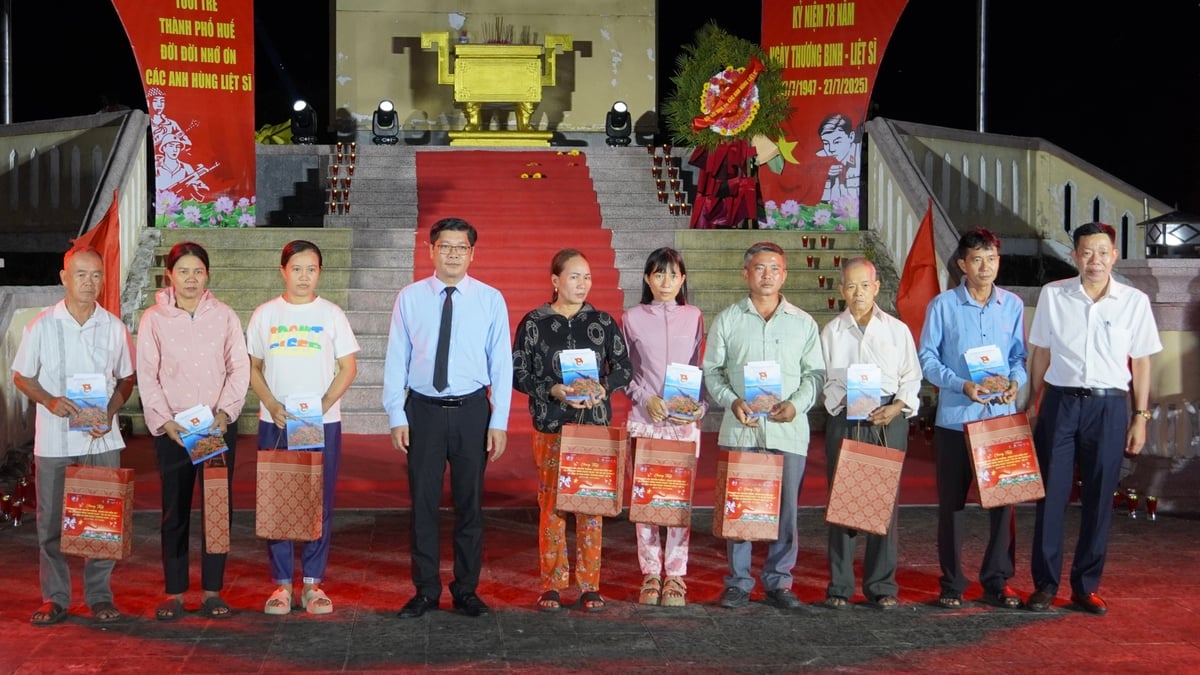

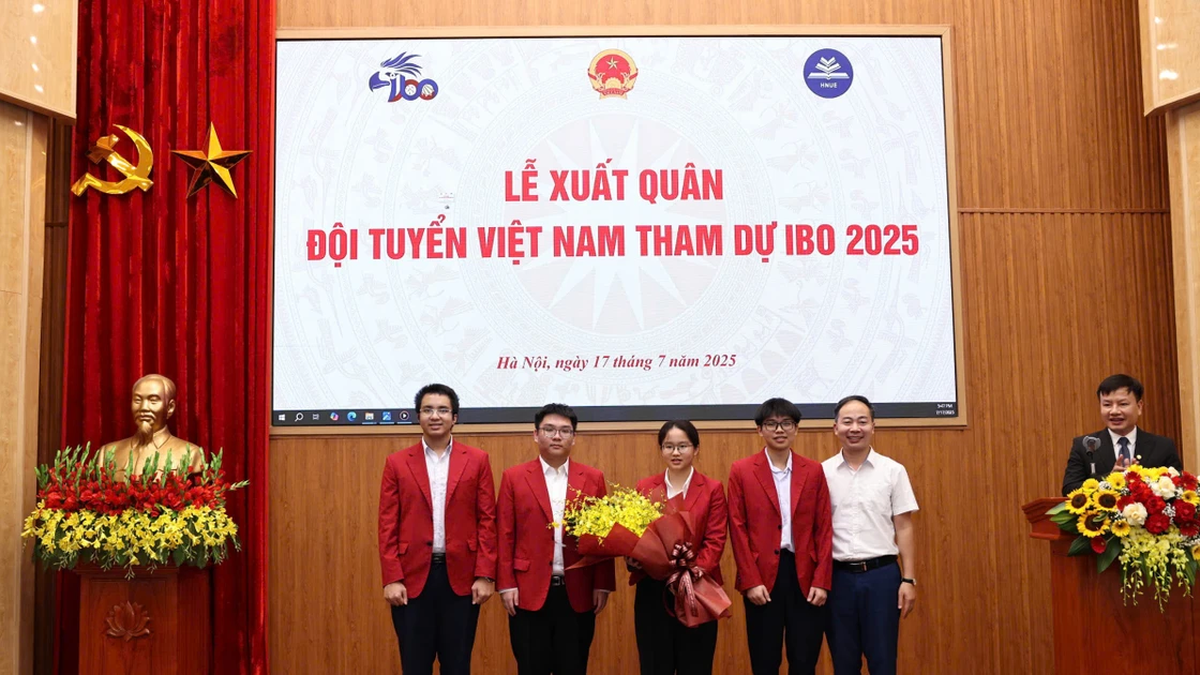




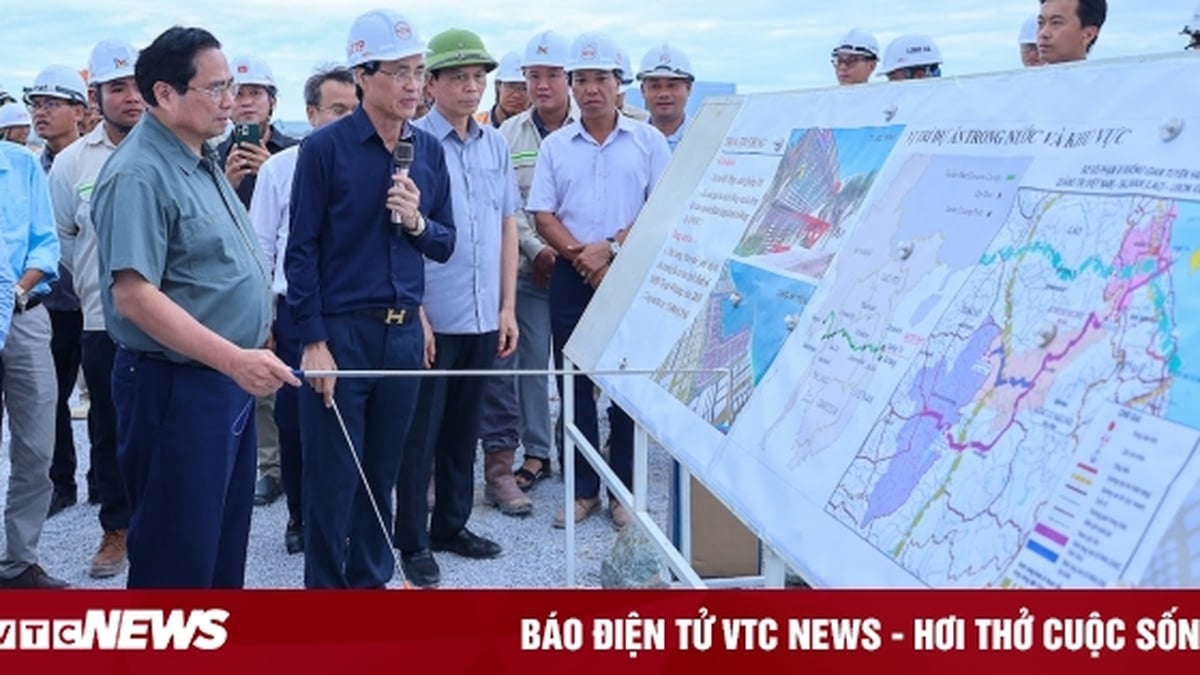























































![[Photo] National Assembly Chairman Tran Thanh Man receives Chairman of Morocco-Vietnam Friendship Association](https://vphoto.vietnam.vn/thumb/402x226/vietnam/resource/IMAGE/2025/7/26/b5fb486562044db9a5e95efb6dc6a263)
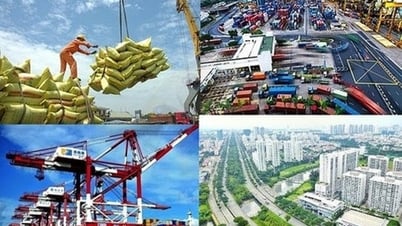


































Comment (0)